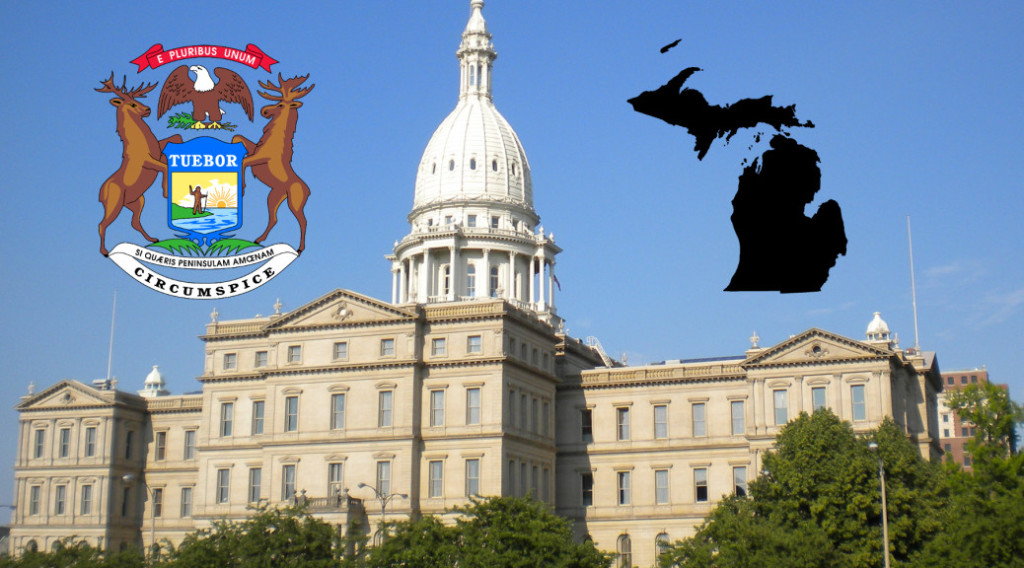Sweeping energy overhaul passes Michigan Senate
Jonathan Oosting | Detroit News Lansing Bureau
Lansing – The Michigan Senate approved Thursday a sweeping package to overhaul state energy policy and rules for electric providers, changes a sponsor said will “keep us in control of our own energy future” amid federal regulatory uncertainty.
The legislation, supported by major utilities, continues to face criticism. It has divided the business community because of proposal regulations for alternative suppliers that offer lower electricity rates to some companies and schools.
The package will “ensure the continued availability of clean, reliable and affordable energy for our citizens and businesses,” sponsoring Sen. Mike Nofs, R-Battle Creek said between the 26-10 and 26-11 votes.
Gov. Rick Snyder backed the amended Senate legislation.
“These policies have the potential to save Michiganders billions of dollars and make our state’s energy future much brighter,” Snyder said in a statement. “I look forward to working with our partners in the House to complete this work before the end of the year.”
Now headed to the House, the legislation would create an “integrated resource planning” process for rate-regulated utilities like DTE and Consumer’s Energy as they seek state approval to build new load facilities while retiring aging coal-fired power plants.
Under a change made Thursday, utilities would be required to produce 12.5 percent of their electricity from renewable sources by 2019 and 15 percent by 2021, up from the current 10 percent mandate. Earlier versions would have eliminated the mandate.
Most Democrats, who pushed for the 15 percent renewable requirement, joined a majority of Republicans in approving the bills.
Supporters say reliability concerns have fueled a push to change the existing electric choice program, which allows alternative and out-of-state suppliers to provide 10 percent of Michigan’s electricity at unregulated and typically less expensive rates.
The legislation would maintain that cap, but the bills or a separate proposal awaiting federal approval would require alternative suppliers to secure capacity to serve customers for three years or pay an undetermined “capacity charge” to utilities.
The influential Michigan Chamber of Commerce endorsed the bills last month, with CEO Rich Studley arguing it would preserve electric choice, ensure reliability and “move the state forward.” The Small Business Association of Michigan also supports the plan.
But critics fear the proposals could “kill” the electric choice market, costing participating businesses and schools significant savings. A coalition including major Michigan employers like Amway and Pfizer opposes the bills.
Terri Reid, president of the conservative Michigan Freedom Fund, said the bills put “massive electric utilities profits” above the needs of residents, schools and employers.
“Senate Bill 437 kills electric choice, abandons free market principles, will raise prices on schools and job creators, and sticks Michiganders with hundreds of millions in higher rates on their electricity,” she said in a statement.
The legislation would create 21 full-time positions at the Michigan Public Service Commission and Michigan Agency for Energy to process rate cases, costing taxpayers roughly $3 million a year, according to a Senate analysis.
Renewable mandate
The long-discussed legislation now heads to the House, where it faces an uncertain future with nine more meeting days scheduled this year. Any bills not passed by the end of 2016 would need to be reintroduced in the next two-year session.
House Energy Committee Chairman Aric Nesbitt said he is confident that the House will approve the package this year, but Rep. Gary Glenn predicted the bills will be “dead on arrival” in the Republican caucus.
“If we want to have long-term, reliable, affordable energy in this state, we need to make sure we pass a robust energy package,” said Nesbitt, R-Lawton.
Glenn said concerns over electric choice, combined with a philosophical opposition to the proposed renewable energy mandate, will turn off many conservative colleagues. He also suggested caution following Tuesday’s win by President-elect Donald Trump.
“Why would we rush to lock Michigan into a policy until we let the Trump administration make clear what their intentions are,” said Glenn, R-Midland. “We’ve been operating under a certain set of expectations from the federal government, and they may dramatically change.”
Removing the mandate could lose Democratic votes in the House.
“I want to see us build on the past successes of our renewable policies and see the investments come into Michigan,” said Sen. Hoon Yung Hopgood, D-Taylor.
Nesbitt said House Republicans will look at the Senate’s “compromise package” and said he was disappointed that Glenn “thinks he can speak for the caucus like that.”
Utilities said they are fine with the 15 percent renewable energy mandate.
“We’re going toward that number anyway,” DTE Energy spokesman John Austerberry said Wednesday. “Additional renewables are part of our long-term plan. Wind power, especially, has become a lot more cost-effective, and it’s already a big part of our portfolio.”
The Michigan Environmental Council called the Senate package a small step forward but said more should be done to reduce costs for consumers and protect public health.
“Further expanding renewable energy will lower electricity costs, create jobs and improve public health. Michigan should be a leader on clean, renewable energy, and our energy policy has a long way to go before that happens,” said James Clift, policy director for the Michigan Environmental Council.



